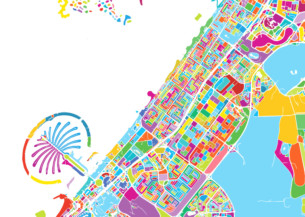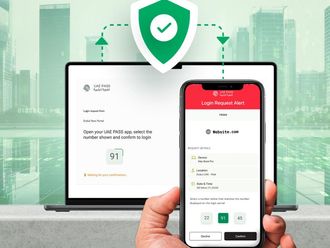
Buying a property in Dubai can be an exciting but equally stressful experience. For many, purchasing a home will be the biggest investment decision they will make in their lifetime. With so much at stake, it is essential that buyers and investors are well informed and cognizant of the risks and rewards that the local real estate market presents. This makes the whole buying process a far smoother one.
Location, location, location
A mantra repeated by real estate agents to prospective homebuyers is “location, location, location”. This adage remains a key consideration when buying property. Why is location so important? Put simply, you can change many things about your property — you can upgrade it, buy new furniture, you can even make the property bigger, or smaller, but you cannot change the location. Where your home is located determines the level of demand, the optimal rental strategy, and importantly it has a large bearing on capital appreciation and hopefully profitability.
A good location is where there is potential for growth and development. Before purchasing a home, buyers should research the future development plans for the area. Developments such as new industrial sites, new roads or railways or even industrial activities can vastly alter the price profile of a community or district. Infrastructure will also have an impact on the value of properties, as too will accessibility to transport routes as well as proximity to amenities.
The price is right
Price is another key element to consider when buying property. For an investor, this is also closely linked to return on investment (ROI). Short-term capital appreciation has often been the main consideration for property investors in Dubai, but current market conditions mean capital gains are harder to come by and yield is now paramount for buyers seeking ROI. When comparing Dubai’s real estate market to other global hotspots, there is still value to be found: data from the Global Property Guide shows a 120-sq-m apartment in a prime Dubai location is selling at an average of $5,918 (Dh21,736) per square metre. This compares to $7,250 in Sydney and $34,531 in London. Other price-related factors to consider include service charges and mortgage rates as these can have a significant impact on the net yield.
Rules and regulations
Ensuring familiarity with local rules and regulations governing Dubai’s real estate industry is also highly recommended for would-be homebuyers. As Dubai’s property market continues to mature, so too has the level of regulatory oversight with the emirate introducing several significant measures over the past few years aimed at improving transparency and ensuring the rights of investors are protected. Of note, Dubai is close to finalising a new rental law that will classify all properties and buildings in the older parts of the city.
For landlords, this means future challenges in ensuring their rental premises meet minimum accepted standards, while for tenants it will provide greater transparency in terms of what they are actually paying for. Another important development has been the recent move to create a star rating system for estate agents in the emirate. This allows potential investors to carry out proper due diligence on property agents based on data from the Dubai Land Department (DLD).
Financial flexibility
Understanding your financial capabilities should always be a top priority when buying property. A lack of clarity in terms of your financial goals may lead to disappointing results, including financial distress, especially if the property is mortgaged. Besides a down payment, investors need to account for transaction-related expenses like agency commissions, land department fees, bank processing fees, property evaluation fees, no-objection certificate charges, mortgage pre-approval costs, move-in costs and renovation costs.
Regulations specified by the UAE Central Bank also dictate the amount of finance that can be obtained. For non-UAE nationals buying their first home, 75 per cent of the property value can be mortgaged for property valued at Dh5 million or less. If the value of the property is more than Dh5 million, non-UAE nationals can borrow a maximum of 65 per cent. For a second property, the maximum loan is set at 60 per cent of the property value.
Central Bank rules governing the purchase of property before completion are also very clear. When buying an off-plan property, the maximum loan amount is 50 per cent. Central bank regulations also state that the maximum term of a mortgage shall be 25 years and the maximum age limit of a borrower at the date of last repayment due on the loan is 65 years (or 70 years if self-employed).
A mortgage must be registered at the DLD and the law also outlines the enforcement mechanism in the event a debtor fails to repay the mortgage value. It is important to note that the mortgage law only allows banks and financial institutions licensed by the Central Bank to provide mortgage finance in Dubai.
For would-be borrowers in the UAE, the outlook for mortgage interest rates is a relatively comfortable one. According to BMI Research, the UAE isn’t expected to hike interest rates until 2018 with inflation in the country remaining steady. With so many mortgage options available in a highly competitive market, homebuyers can be selective in choosing the right financing that suits their individual needs.
Off-plan vs ready made
Choosing between an off-plan property, or a ready-made one, is a familiar conundrum for would-be real estate investors in Dubai. While riskier than completed units due to the potential for delays, cancellations, poor finishing and a change in overall market conditions, from a developer point of view off-plan is the better option. The advantages of off-plan investment for buyers include payments that can be spread over a longer period, lower upfront costs and a more competitive price, meaning the potential for ROI is a higher.











